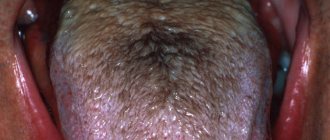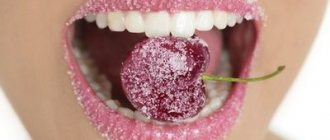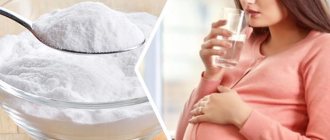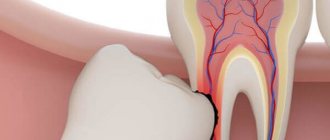According to statistics from the Medical Society of Therapists, more than 50% of the adult population , when seeking help from a medical institution, complains of strange taste sensations in the mouth.
At the same time, they do not in any way depend on the taste of the food consumed, but appear on their own.
Most of these patients note that they feel an unpleasant taste of soda in their mouth.
In this case, it may disappear for a short time, and then appear again.
Important! Such a symptom must be treated with the utmost care, because it often hides serious health problems.
Probable Causes
Diseases
A common cause is disruption of the digestive system. But serious diseases can provoke the phenomenon.
- Liver problems. In the initial stages of liver disease, there is no pain syndrome, so the taste of soda will help not to miss a possible malfunction of the body.
- Disorders of the biliary tract. Perhaps they are full of bile. During normal operation, bile should flow into the duodenum. But in case of pathology, it accumulates in the gallbladder, after which it is thrown out through the stomach and esophagus into the mouth.
- Gastritis with low acidity. When the secretion of gastric juice is weak, food is not completely digested, it stagnates, which provokes a kind of fermentation in the body. The result is an unpleasant odor (halitosis) and a soda taste in the mouth. A related symptom of the disease is a rotten taste.
- Diabetes. Only an endocrinologist can establish an accurate diagnosis. Only he can eliminate the symptoms by prescribing medications and a therapeutic diet.
- Violation of the integrity of the tooth, inflammation of the gums, and bleeding are possible provocateurs for the appearance of a soda taste in the oral cavity.
To solve the problem you need the help of a specialist. Only a full medical examination will allow you to accurately determine the source of the unpleasant taste. And the doctor will be able to establish a diagnosis and prescribe a course of treatment. Ignoring such a symptom is unacceptable!
Other provocateurs
- Alcohol abuse. Excessive drinking leads to dehydration. As a result, saliva becomes more viscous, sometimes salty, and begins to taste like soda. It is necessary to limit or completely stop drinking alcoholic beverages.
- Long-term drug therapy. Some medications and treatments cause changes in taste because they affect nerve endings, changing the brain's perception. It is possible to refuse to use a particular drug, but only with the approval of the attending physician.
- Binge eating. The intestines do not have time to process large volumes of food and lose activity. Food stagnates, which leads to an unpleasant astringent sensation in the mouth. Will correct the situation: balanced fractional meals.
- Excess iodine. It is rare in medical practice. Associated symptoms: foul breath, fever and vomiting. Gastric lavage will help.
- Nutrient deficiency. American doctors associate the loss or severe decrease in taste with a lack of vitamin B12 and zinc in the body.
- Smoking. Cigarettes contain toxic chemicals that damage your taste buds. The result is a terrible taste and bitterness in the mouth. In experienced smokers, even after quitting the bad habit, the receptors may not fully recover.
Provocateurs: antibiotics, antidepressants, hormonal, cardiac, chemotherapy, neurological medications, drugs for tuberculosis, Alzheimer's disease.
Attention! The taste of soda in your mouth may indicate other serious disorders: brain damage, an allergic reaction, the effects of radiation therapy, an autoimmune disorder.
Useful video
From this video you will learn what to do if you have an unpleasant taste in your mouth:
The feeling of soda in the mouth is a signal from the body that requires careful attention to itself .
It is quite possible that he is simply “tired” of overeating, nervous tension , taking a large number of medications and begins to malfunction in this way.
And it is quite possible that he is crying out for help. And it requires curing a disease in order to avoid the occurrence of other, more serious health problems.
Associated symptoms
Nausea
The taste of soda along with nausea indicates gastritis.
Bitterness
If bitterness and metal are mixed into the soda taste, this is a sign:
- pathologies of the liver and biliary tract;
- lazy bowel: weak peristalsis leads to the accumulation of food debris in the intestinal tract.
Sweet taste
The taste of sweetness in the mouth is one of the first symptoms of diabetes.
Dry mouth
The feeling of dryness in the mouth (when the mucous membrane seems tight, thirst arises) is subjective, but it clearly signals that you need to make an appointment with a doctor.
Viscous saliva
Indicates alcohol abuse and/or dehydration.
Liver pain
A soda taste in combination with pain in the liver can indicate serious diseases of the hepatobiliary system.
Since at the beginning of the disease the liver does not cause pain, people who are inattentive to their body trigger the disease.
Acid and bitterness
A bitter taste indicates a disruption of the liver and bile ducts. It may appear occasionally, but may bother you regularly.
Possible causes of a bitter-sour aftertaste:
- significant errors in nutrition - the liver is simply not able to cope with so many fatty, heavy, spicy foods, alcoholic drinks;
- alcoholism - the liver suffers first;
- treatment with aggressive drugs - a long course of antibiotics, antihistamines, and other medications;
- those who like to smoke a cigarette at night.
If we consider bitterness in the oral cavity in terms of the intended diagnosis, then most often it is cholecystopancreatitis, erosion of the mucous membranes of the stomach and intestines, gastritis.
Development time
After meal
A common reason for feeling the taste of soda immediately after eating is overeating.
The body, which has received a large portion of food (be it fried potatoes or vegetable salad), is not able to immediately break down and absorb it. Undigested residues settle in the gastrointestinal tract (GIT), forming real blockages.
Before bedtime
Due to the gradual accumulation of digestive waste in the body, an unpleasant taste may not appear immediately after eating, but only before bed.
In the morning
The taste of soda in the morning signals problems in the digestive system: the food that entered the body the day before during dinner did not have time to be digested.
The second probable cause is problems with teeth and gums, inflammatory processes in the ENT organs.
Why else do you need soda?
Was this whole complex process of making baking soda invented just to make the loaves fluffier? This product can be very useful in everyday life, while it is absolutely safe, non-toxic, fire and explosion proof.
Soda is a universal detergent and cleaner: for dishes, tiles, sinks, bathrooms, but it does not harm the skin of your hands and is completely washed off with water. Using soda, you can descale the kettle (2 tbsp soda + 500 ml boiling water, 5 hours) and clean the drain pipes (5 tbsp soda + 100 ml vinegar, 1 hour).
Another feature of soda is that it not only cleans, but gets rid of unpleasant odors, so it can be applied to the carpet or upholstered furniture, left for 10-15 minutes, and then vacuumed.
Soda is a mild abrasive that cleans and disinfects children's clothes and toys, while being absolutely safe for babies' skin. To effectively remove stains and eliminate unpleasant odors during washing, you can add soda: unlike some washing powders, soda is hypoallergenic.
Baking soda is an excellent cleaning agent
During pregnancy
As a result of a hormonal surge, pregnant women become very sensitive to bright smells and tastes. In the first months, some complain of the feeling of the presence of soda in the mouth. This goes away in the second trimester.
But another reason is possible.
Expectant mothers, listening to the advice of the older generation, begin to eat for two. Add exotic food wishes to this and you get an overload of the digestive system.
This negatively affects the unborn child. A woman’s health also suffers: an unbalanced diet during pregnancy serves as an impetus for the development of gastrointestinal diseases and obesity.
Peculiarities
In men
Abuse of alcoholic beverages and smoking , which are often common among the stronger sex, causes dehydration.
As a result, their saliva becomes more viscous and contains the taste of salt and soda .
To eliminate the unpleasant symptom, it is necessary to limit or completely stop drinking alcohol, and also drink at least 2 liters of water per day every day.
Among women
The taste of soda in the mouth often occurs when women use hormonal contraceptives for a long time or during pregnancy .
You should know! Both factors are directly related to a woman’s hormonal levels.
Any violation or deviation in which can provoke a distortion of the taste sensation: in this state, even familiar and favorite tastes can be perceived differently.
Such a feeling may be subjective, or it may have a very real basis.
In addition, pregnant women often overeat, eating “for two.”
Considering their often simply exotic wishes for food, we can conclude: the digestive system of expectant mothers suffers from overload, as a result of which a similar effect occurs.
After food
Milk
Feelings of the presence of soda in the mouth, dryness and tightness of the mucous membrane after milk can indicate problems with the stomach, especially if accompanied by nausea.
Baked goods containing soda
Many baked goods contain baking soda as a leavening agent. The characteristic taste after eating such sweets is not a cause for concern.
The body probably received an excessive amount of sodium bicarbonate from food. After some time, the unpleasant feeling will pass.
Jam
Sometimes a pinch of soda is added to the jam, but its taste after the classic delicacy is a signal that you need to see an endocrinologist.
The appearance of a persistent soda taste after sweets is associated with a sharp jump in blood sugar levels. Most likely, diabetes mellitus develops.
Sour taste in pregnant women
The appearance of such an unpleasant aftertaste in a pregnant woman is facilitated by 2 metabolic processes associated with the process of bearing offspring.
You can thank for the acid in your mouth:
- The hormone progesterone. This is a necessary condition for pregnancy. This substance helps relax muscle tissue, preventing the development of fetal rejection. Ideally, it should act only on the muscles of the uterus. But in reality, all smooth muscles relax, including the muscles of the stomach and esophagus.
- The growing uterus puts pressure on the hollow organs. There is a reflux of stomach contents into the esophagus and oral cavity. The result is heartburn and an acidic taste in the mouth.
In this case, taking an antacid is indicated at the discretion of the gynecologist. But first you should exclude diseases of the gastrointestinal tract. The drug of choice can be Gaviscon in any convenient form.
Prevention
The best prevention: regular visits to a therapist, passing the necessary tests. If you have the slightest problem with the digestive system, consult a gastroenterologist.
Effective preventive measures:
- Regular cleansing of the oral cavity: brushing teeth twice a day (morning and evening), additional rinsing with special antibacterial agents.
- Cleaning the tongue in the morning with a teaspoon (light movements back and forth, left and right) followed by rinsing with water.
- Eating citrus fruits. Lemons, oranges and grapefruits promote natural salivation and sanitize the oral cavity.
- At least 2 liters of clean drinking water daily.
- Rinse with a solution of sea salt, water with lemon juice, decoctions of chamomile, sage, fennel.
- Regular fractional and rational meals, rich in nutrients.
- The use of additional intestinal support agents during long-term drug treatment.
Treatment and elimination of unpleasant symptoms
The first step on the path to recovery is strict adherence to a therapeutic diet : avoiding fatty, salty, spicy foods. Alcohol ban. Meals should be fractional and in small portions.
Stay up to date! Drug treatment is prescribed according to the regimen determined by the attending physician, based on the established diagnosis.
Following some simple rules and recommendations will help reduce the intensity of unpleasant sensations in the mouth:
- Maintain oral hygiene: brushing your teeth and tongue twice a day, using pharmaceutical rinses, dental floss, regularly rinsing your mouth with water after each meal.
- Drinking enough fluids per day : water, juices, lemonade will help get rid of the soda taste.
- Increasing the amount of fruits and vegetables in the diet : some of them have the ability to influence the speed and quality of saliva formation. That, in turn, easily “washes away” the unpleasant taste from the surface of the mucous membrane.
- Rinsing the mouth with salt water will help in emergency cases to quickly get rid of the unpleasant symptom.
- Baths and rinses made from decoctions of medicinal herbs will also help chamomile, sage, string, sea buckthorn, fennel.
- You can also resort to chewing gum or a special spray : however, the effect will be relatively short-lived.
Treatment methods
- To prescribe the correct treatment, the doctor will definitely refer the patient who complains of the taste of soda in the mouth for examination: ultrasound of internal organs, ECDS, examination of gastric juice.
- A necessary condition is a diet: limiting fatty, salty, spicy foods, prohibiting alcohol.
- Taking medications as prescribed by the doctor after diagnosis.
Carefully! Do not resort to traditional methods of eliminating the unpleasant taste of soda in the mouth without qualified consultation with a doctor. Pseudoscientific recipes can make your condition worse.
Diagnostics
It is impossible to independently determine the cause of the distortion of taste at home.
Note! If you experience a systematic soda taste in your mouth, you should definitely consult a doctor.
Self-medication is unacceptable and can only worsen your health.
If such a sensation occurs in the mouth,
you should first consult a therapist .
It is this specialist who, after talking with the patient, collecting his medical history and receiving the results of simple laboratory tests ( general blood and urine tests ), will establish a presumptive diagnosis.
If necessary, the therapist will redirect the patient to specialized specialists:
- The gastroenterologist will prescribe an ultrasound of the abdominal organs, ECDS and examination of gastric juice if there is a suspicion that there is a problem with the health of the digestive tract.
- The endocrinologist will refer the patient for a blood test to determine sugar in order to confirm or refute the diagnosis of diabetes mellitus.
- The dentist will examine the patient's oral cavity : diseases hidden in it can be a source of an unpleasant taste sensation.
- The otolaryngologist will examine the ENT organs: inflammation developing in them can give such a “side effect”.
- The toxicologist will study the test results and talk with the patient: his help will be needed in case of poisoning or overdose of chemicals.
- The narcologist will examine the person, talk to him, and conduct a series of diagnostic tests to determine whether the patient is abusing alcohol.
After conducting a set of studies, the doctor will indicate the necessary pharmacological drugs and determine a treatment regimen.
Rules for the procedure
In order for rinsing to be beneficial, you need to adhere to certain rules3 in the use of ready-made preparations and the preparation and use of solutions from them.
- The proportions of the components must be strictly observed. The question “how much baking soda to gargle” is perhaps one of the most popular on the Internet. It disappears if you use ready-made pharmaceutical preparations that no longer need to be diluted with water - these are the ones most often recommended by doctors.
- The solution should not be cold or hot - only warm3,4. For this reason, there is no need to keep medications in the refrigerator.
- Follow the instructions for the duration of the procedure - this ensures the necessary contact of the active components of the drug with the mucous membrane3.
- Follow the manufacturer's recommended frequency of treatments to ensure continuity of treatment. The components of the drug retain their activity at the site of inflammation for a limited amount of time.
- Try not to swallow the product. Of course, there will be no poisoning in any case, but still, rinsing preparations are not intended for oral administration.
- For half an hour after the procedure, drink nothing and do not eat food3,4. This is important to prolong the contact of the drug with the affected mucous membrane.
Up to contents
General principles of rinsing
Its undoubted advantage is the lack of systemic action. The components of the solutions are practically not absorbed, do not penetrate into the general bloodstream, and do not affect the functioning of the organs and systems of the body3,4. This allows the procedure to be used not only in the treatment of adults, but also in children and pregnant women3.
The generally accepted local procedure has a versatile effect.
- Mechanical cleansing of the mucous membrane. More precisely, its disposal of pathogenic microorganisms, mucus and pus, which contains pathogens and toxins formed as a result of their vital activity 3.4. By the way, this basically limits the effect when gargling with soda for a child or adult.
- Antiseptic effect. Pharmaceutical preparations contain components that have a detrimental effect on most bacteria, viruses and fungi, which most often cause diseases of the pharynx and oral cavity4,5.
- Creating conditions unfavorable for the proliferation of microbes. The normal acidity of human body tissues ranges from pH 7.32 to 7.45, which corresponds to an alkaline environment. Inflammation, especially purulent inflammation, is accompanied by acidification of tissues and a decrease in pH to 6.5-5.39, which contributes to the further development of infection1. Many rinses alkalize the environment and create conditions unfavorable for the development of viruses and bacteria1, but the majority of drugs inhibit the growth of bacteria due to the action of their antiseptic component3.4.
- Pain relief. Of course, when gargling with baking soda, you can’t really count on relieving a sore throat. But the use of pharmaceutical preparations specially designed for this purpose, containing local anesthetics, can significantly alleviate suffering3,4.
- Reducing signs of inflammation. The action of the medicine leads to a decrease in swelling, pain and redness of the inflamed mucous membrane. At the same time, discomfort in the oral cavity, sore throat and cough caused by irritation of the receptors of the upper respiratory tract are reduced.
- Thinning mucus and making it easier to expectorate4. Some solutions dilute sputum by shifting the pH of mucus to the alkaline side, others contain special components that reduce the viscosity of mucus and thereby facilitate its removal4.5.
Up to contents
Does gargling with baking soda help?
To carry out the procedure, use ordinary baking soda, which is found in almost every kitchen. In terms of chemistry, it is the sodium acid salt of carbonic acid with the formula NaHCO3 (sodium bicarbonate)2.
Sodium bicarbonate, as an active ingredient, is in the register of medicines2. Indications for its use include acute infections of the upper respiratory tract and inflammatory diseases of the oral cavity2. It also describes its action and indicates how much soda is needed to gargle. However, it must nevertheless be recognized that as a means of local therapy for tonsillitis, pharyngitis and stomatitis, it is hopelessly outdated. Its mentions are rare and found in medical articles dating back to the last century. Experts who keep up with the times excluded it from their recommendations. Sodium bicarbonate is not only ineffective, but also not as safe as it might seem at first glance5.
Why shouldn't you use baking soda?
- Questionable effect. Statistics show that 90% of patients who turn to ENT doctors with pharyngitis independently and repeatedly gargle and, nevertheless, they had to resort to medical help5.
- Violation of natural defense mechanisms. The mucus produced by the glands of the pharynx performs a protective function. Microbes that get inside “get stuck” in mucus, lose their activity and partly die under the influence of biologically active substances - interferon, immunoglobulins, lysozyme and others. When rinsing, mucus is washed away, as a result of which the mucous membrane becomes dry, vulnerable and vulnerable to bacterial viruses5. From this point of view, it is probably better to use antiseptics for the procedure, which not only remove mucus, but also kill pathogenic microbes.
- Dryness of the pharyngeal mucosa. This is especially true for chronic pharyngitis, accompanied by thinning of the inner lining of the pharynx and decreased mucus secretion7. Sodium bicarbonate dries out the mucous membrane even more and thereby opens the entrance gates to bacteria that live in the upper respiratory tract and enter through the nose and mouth.
- Effect on stomach acidity. This mechanism is realized when the sodium acid salt of carbonic acid enters the stomach, which often happens in children who do not know how to gargle. By reacting with the hydrochloric acid of gastric juice, sodium bicarbonate literally immediately reduces the acidity of the stomach6. However, soon it not only recovers, but also becomes higher compared to the initial level. This is due to irritation and increased activity of acid-producing cells6. It is because of this that it is not used as an antacid, that is, a means to reduce stomach acidity6. Soda can be dangerous for people with hyperacid gastritis, gastric and duodenal ulcers, as well as for children with underdeveloped protective mechanisms of the digestive system6.
- During pregnancy. The specific taste of soda can provoke vomiting in pregnant women, which is associated with a physiological increase in the gag reflex. In addition, in late pregnancy, when many pregnant women suffer from heartburn, sodium carbonate entering the stomach can cause increased symptoms6.
- Acidosis. Of course, for the development of acidosis, that is, a violation of the acid-base state of the body, accompanied by acidification, you need to take much more soda orally than is needed for gargling. However, we cannot ignore this complication. Even a short-term shift in acid-base status in patients with renal failure can significantly worsen the condition2. In patients with heart disease, it provokes the appearance of edema and the development of heart failure2.
Self-medication is, in principle, dangerous to health, and taking into account all of the above, it is better to remove soda from the medicine cabinet and not use it even for adults. But the question deserves special attention: is it possible to gargle with soda for a child? Due to their age and lack of skills in performing the procedure, young children often swallow solutions5. They are at higher risk of developing sodium bicarbonate side effects than adults5. Special products have been created for children5 in the form of sprays with antiseptic and anti-inflammatory components - these are in the HEXORAL® line of drugs.
Up to contents









